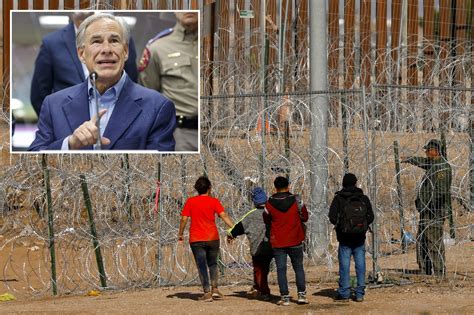
The FBI has reportedly declined to participate in a revived Trump administration plan to use the agency to locate and round up undocumented immigrants, a move characterized as a significant setback for Stephen Miller, the architect of the original strategy. The decision marks a stark reversal of the FBI’s role in immigration enforcement and raises concerns about the potential for politicization of law enforcement agencies.
The proposed plan, spearheaded by Miller, envisioned leveraging the FBI’s resources to identify and apprehend individuals who had been ordered deported but remained in the United States. According to Yahoo News, which reviewed internal documents and spoke to multiple sources familiar with the matter, the FBI’s refusal stems from legal and ethical reservations, as well as concerns about straining the agency’s resources and damaging its reputation.
“The FBI determined that it could not participate in the manner requested,” a source familiar with the decision told Yahoo News. This determination is seen as a major blow to Miller’s efforts to implement a more aggressive immigration enforcement strategy.
The original plan, conceived during the Trump administration, faced significant legal challenges and widespread criticism from civil rights groups, who argued that it would lead to racial profiling and violations of due process. The FBI’s reluctance to participate in the revived plan suggests a growing awareness within the agency of these concerns and a desire to maintain its independence from political interference.
The rejection highlights the complex legal and ethical considerations involved in using federal law enforcement agencies for immigration enforcement. While the FBI has historically provided support to Immigration and Customs Enforcement (ICE) in certain cases, the proposed plan would have significantly expanded the agency’s role, potentially blurring the lines between criminal investigations and immigration enforcement.
The FBI’s decision also reflects concerns about the potential impact on its resources and its ability to focus on its core mission of combating terrorism, organized crime, and cyber threats. Participating in large-scale immigration enforcement operations would require significant manpower and resources, potentially diverting attention from other critical priorities.
Furthermore, the FBI’s leadership is reportedly wary of the potential damage to the agency’s reputation. The perception that the FBI is being used for political purposes could undermine public trust and make it more difficult for the agency to effectively carry out its law enforcement duties.
The Justice Department declined to comment on the specific details of the plan, but a spokesperson emphasized the department’s commitment to enforcing immigration laws. “The Department of Justice is committed to enforcing the immigration laws of the United States,” the spokesperson said.
The FBI’s refusal to participate in Miller’s plan underscores the ongoing debate over the appropriate role of law enforcement in immigration enforcement. While some argue that federal agencies have a responsibility to enforce immigration laws, others contend that immigration enforcement should be primarily the responsibility of specialized agencies like ICE. The debate is likely to continue as policymakers grapple with the complex challenges of immigration reform and border security.
The decision also highlights the potential for tension between political appointees and career law enforcement professionals. While political appointees have the authority to set policy priorities, career law enforcement officials have a responsibility to ensure that those policies are implemented in a lawful and ethical manner. The FBI’s reluctance to participate in Miller’s plan suggests that career officials were concerned that the plan would cross legal and ethical boundaries.
This situation serves as a reminder of the importance of maintaining the independence of law enforcement agencies from political interference. The FBI’s effectiveness depends on its ability to maintain public trust and to operate without fear of political reprisal. When law enforcement agencies are perceived as being used for political purposes, their credibility is undermined, and their ability to effectively carry out their mission is compromised.
Stephen Miller has been a vocal advocate for stricter immigration policies and has played a key role in shaping the Trump administration’s immigration agenda. His efforts to revive the plan to use the FBI for immigration enforcement reflect his continued commitment to these policies. However, the FBI’s refusal to participate suggests that his efforts are facing increasing resistance from within the government.
The Biden administration has taken a different approach to immigration enforcement, focusing on prioritizing the apprehension and deportation of individuals who pose a threat to national security or public safety. The administration has also emphasized the importance of due process and has sought to implement more humane immigration policies.
The FBI’s decision is likely to be welcomed by civil rights groups and immigration advocates, who have long criticized the use of law enforcement agencies for immigration enforcement. These groups argue that such practices can lead to racial profiling and violations of civil liberties.
The situation also raises questions about the future of immigration enforcement policy. As the debate over immigration reform continues, policymakers will need to consider the appropriate role of law enforcement in immigration enforcement and the potential impact of different policies on civil rights and civil liberties.
The details of Miller’s plan remain largely confidential, but reports indicate that it would have involved using the FBI’s databases and investigative resources to identify and locate individuals who have been ordered deported but remain in the United States. The FBI would then work with ICE to apprehend and deport these individuals.
Critics of the plan argue that it would have effectively turned the FBI into an immigration enforcement agency, diverting resources from its core mission of combating crime and terrorism. They also argue that it would have led to racial profiling, as agents would be more likely to target individuals based on their ethnicity or national origin.
Proponents of the plan argue that it is necessary to enforce immigration laws and to protect national security. They argue that individuals who have been ordered deported but remain in the United States are violating the law and should be apprehended and deported.
The debate over the FBI’s role in immigration enforcement is likely to continue as policymakers grapple with the complex challenges of immigration reform and border security. It is essential that these debates are informed by accurate information and a clear understanding of the legal and ethical considerations involved.
The Justice Department’s response to the FBI’s decision will also be closely watched. While the department has expressed its commitment to enforcing immigration laws, it remains to be seen whether it will attempt to pressure the FBI to reconsider its decision or whether it will seek alternative ways to implement the plan.
The FBI’s decision also has implications for the relationship between the agency and the White House. The White House may be disappointed by the FBI’s refusal to participate in the plan, but it is essential that the White House respect the independence of the FBI and avoid any actions that could be perceived as political interference.
The situation underscores the importance of maintaining a clear separation between law enforcement and politics. The FBI’s effectiveness depends on its ability to maintain public trust and to operate without fear of political reprisal. When law enforcement agencies are perceived as being used for political purposes, their credibility is undermined, and their ability to effectively carry out their mission is compromised.
The FBI’s decision to decline participation in the program can be interpreted as an effort to uphold the agency’s integrity and to protect its resources from being spread too thin. The FBI has a broad mandate, including combating terrorism, cybercrime, and organized crime, and its resources are already stretched thin. Taking on a significant role in immigration enforcement would likely require diverting resources from these other critical priorities.
Moreover, the FBI’s involvement in immigration enforcement could have a chilling effect on communities’ willingness to cooperate with the agency. If people fear that the FBI is primarily interested in deporting undocumented immigrants, they may be less likely to come forward with information about crimes. This could make it more difficult for the FBI to investigate and prosecute criminals.
The decision by the FBI is not simply a matter of law enforcement policy; it is also a matter of values. The FBI is an institution that is supposed to be committed to justice and fairness. By refusing to participate in a plan that could lead to racial profiling and violations of civil liberties, the FBI is sending a message that it is committed to upholding these values.
The implications of this decision reach beyond the immediate context of immigration enforcement. It speaks to the broader issue of the role of law enforcement in society and the importance of maintaining the independence of law enforcement agencies from political interference. It is essential that law enforcement agencies be allowed to operate without fear of political reprisal and that they be held accountable for upholding the law and protecting civil liberties.
In conclusion, the FBI’s reported decision to decline participation in Stephen Miller’s proposed immigration enforcement plan represents a significant development in the ongoing debate over immigration policy. It underscores the complex legal, ethical, and practical considerations involved in using federal law enforcement agencies for immigration enforcement, and it highlights the importance of maintaining the independence of law enforcement agencies from political interference. The decision is likely to have far-reaching implications for the future of immigration enforcement policy and for the relationship between law enforcement agencies and the communities they serve. The implications of this decision should not be underestimated, and it is essential that policymakers give careful consideration to the long-term consequences of their actions.
The decision is also likely to reignite the debate over the role of Stephen Miller in shaping immigration policy. Miller has been a controversial figure, and his views on immigration are widely seen as being extreme. His efforts to revive the plan to use the FBI for immigration enforcement suggest that he remains a powerful force in the debate over immigration policy.
Frequently Asked Questions (FAQs)
1. Why did the FBI reportedly decline to participate in Stephen Miller’s migrant plan?
The FBI reportedly declined due to legal and ethical reservations, concerns about straining resources, and potential damage to its reputation. The agency seemed to perceive that the proposed plan could blur the lines between criminal investigations and immigration enforcement, potentially leading to racial profiling and civil rights violations.
2. What was the original plan proposed by Stephen Miller during the Trump administration?
The original plan involved leveraging the FBI’s resources to identify and apprehend individuals who had been ordered deported but remained in the United States. This would have significantly expanded the FBI’s role in immigration enforcement beyond its traditional support to ICE.
3. What concerns did civil rights groups express about the proposed plan?
Civil rights groups expressed concerns that the plan would lead to racial profiling, violations of due process, and an overreach of federal law enforcement into immigration matters, potentially undermining community trust.
4. What has been the Biden administration’s approach to immigration enforcement?
The Biden administration has focused on prioritizing the apprehension and deportation of individuals who pose a threat to national security or public safety. It has also emphasized due process and sought to implement more humane immigration policies compared to the previous administration.
5. What are the potential implications of the FBI’s decision for the future of immigration enforcement policy?
The FBI’s decision may lead to a re-evaluation of the appropriate role of law enforcement in immigration enforcement. Policymakers might need to consider the impact of different policies on civil rights, civil liberties, and the overall effectiveness of law enforcement agencies. It also underscores the importance of maintaining a clear separation between law enforcement and politics to preserve public trust.
Expanded Analysis and Contextual Background:
The significance of the FBI’s reported decision to step away from Stephen Miller’s revived immigration plan extends far beyond a simple refusal to participate. It touches upon fundamental issues of civil liberties, the role of law enforcement in a democratic society, and the delicate balance between national security and individual rights. To fully grasp the implications, it’s crucial to examine the historical context, the legal framework surrounding immigration enforcement, and the broader political landscape.
Historical Context:
The use of federal law enforcement agencies in immigration enforcement is not a new phenomenon. Throughout history, various agencies, including the FBI, have provided support to immigration authorities in specific cases. However, the scale and scope of Miller’s proposed plan represent a significant departure from past practices. It envisioned a proactive role for the FBI in identifying and rounding up undocumented immigrants, essentially transforming the agency into a de facto immigration enforcement arm.
During the Trump administration, immigration policy became a central focus, with a strong emphasis on border security and increased enforcement. Stephen Miller, as a key architect of these policies, advocated for a more aggressive approach, often pushing the boundaries of existing laws and regulations. The initial version of the FBI plan, conceived during this period, faced legal challenges and widespread criticism, but Miller remained committed to its implementation.
Legal Framework:
The legal framework governing immigration enforcement is complex and often ambiguous. While federal law grants broad authority to the government to regulate immigration, it also imposes significant limitations on the exercise of that authority. The Fourth Amendment, which protects against unreasonable searches and seizures, and the Fifth Amendment, which guarantees due process, are particularly relevant in the context of immigration enforcement.
Any plan that involves the use of law enforcement agencies to identify and apprehend undocumented immigrants must comply with these constitutional protections. This means that agents must have a reasonable suspicion that an individual has violated immigration laws before taking any action. It also means that individuals have the right to due process, including the right to a hearing before being deported.
The FBI’s reluctance to participate in Miller’s plan may stem from concerns that it would be difficult to comply with these constitutional protections. The plan’s reliance on databases and investigative resources to identify undocumented immigrants could potentially lead to racial profiling, as agents might be more likely to target individuals based on their ethnicity or national origin.
Political Landscape:
The debate over immigration policy is highly polarized, with deep divisions between Democrats and Republicans on issues such as border security, enforcement, and pathways to citizenship. The Biden administration has sought to take a more moderate approach to immigration, focusing on prioritizing the apprehension and deportation of individuals who pose a threat to national security or public safety.
However, Republicans have criticized the Biden administration’s policies, arguing that they are too lenient and that they have led to a surge in illegal immigration. Stephen Miller and other conservative activists have continued to advocate for stricter immigration policies, including the use of federal law enforcement agencies to enforce immigration laws.
The FBI’s decision to decline participation in Miller’s plan can be seen as a reflection of these political divisions. The agency is likely wary of becoming entangled in the political debate over immigration and of being perceived as taking sides in the debate.
Implications:
The FBI’s reported decision has several important implications. First, it represents a significant setback for Stephen Miller and other advocates of stricter immigration policies. The FBI’s refusal to participate in the plan makes it more difficult to implement those policies, and it sends a message that the agency is not willing to be used for political purposes.
Second, the decision underscores the importance of maintaining the independence of law enforcement agencies from political interference. The FBI’s effectiveness depends on its ability to maintain public trust and to operate without fear of political reprisal. When law enforcement agencies are perceived as being used for political purposes, their credibility is undermined, and their ability to effectively carry out their mission is compromised.
Third, the decision may lead to a re-evaluation of the appropriate role of law enforcement in immigration enforcement. Policymakers may need to consider the impact of different policies on civil rights, civil liberties, and the overall effectiveness of law enforcement agencies.
Fourth, the decision highlights the ongoing tension between political appointees and career law enforcement professionals. While political appointees have the authority to set policy priorities, career law enforcement officials have a responsibility to ensure that those policies are implemented in a lawful and ethical manner.
Moving Forward:
The FBI’s decision to decline participation in Stephen Miller’s proposed immigration enforcement plan is a complex and consequential development. It raises important questions about the role of law enforcement in immigration enforcement, the balance between national security and individual rights, and the need to maintain the independence of law enforcement agencies from political interference.
Moving forward, it is essential that policymakers engage in a thoughtful and informed debate about these issues. They must consider the legal, ethical, and practical implications of different policies, and they must strive to strike a balance between the need to enforce immigration laws and the need to protect civil rights and civil liberties.
It is also essential that law enforcement agencies be allowed to operate without fear of political reprisal and that they be held accountable for upholding the law and protecting civil liberties. The FBI’s decision to decline participation in Miller’s plan suggests that the agency is committed to these principles.
Finally, it is important to remember that immigration is a complex and multifaceted issue. There are no easy solutions, and any policy must be carefully considered to ensure that it is fair, effective, and consistent with American values. The FBI’s decision serves as a reminder of the importance of engaging in a thoughtful and informed debate about immigration policy.
The refusal by the FBI should also prompt a deeper examination of the motivations behind pushing such a plan in the first place. Was it a genuine attempt to address immigration concerns, or was it a politically motivated effort designed to appeal to a specific segment of the population? Understanding the underlying motivations can help to inform future policy decisions and prevent similar situations from arising.
Furthermore, this situation provides an opportunity to strengthen the legal framework surrounding immigration enforcement. Congress should consider clarifying the authority of federal law enforcement agencies to participate in immigration enforcement and establish clear guidelines for ensuring that such activities are conducted in a lawful and ethical manner.
The FBI’s decision also raises questions about the coordination between different federal agencies. It is essential that there be clear lines of communication and cooperation between the FBI, ICE, and other relevant agencies to ensure that immigration enforcement efforts are effective and efficient.
In addition to the legal and political considerations, there are also important humanitarian concerns to be addressed. Immigration policies should be designed to be humane and compassionate, and they should take into account the needs of vulnerable populations, such as asylum seekers and refugees.
Ultimately, the goal should be to create an immigration system that is fair, efficient, and consistent with American values. The FBI’s decision to decline participation in Stephen Miller’s proposed immigration enforcement plan is a step in the right direction, but there is still much work to be done. By engaging in a thoughtful and informed debate about immigration policy, policymakers can help to create a system that works for everyone.
The decision also brings to light the challenge of balancing national security concerns with the protection of civil liberties. While it is important to enforce immigration laws and protect the country from potential threats, it is equally important to ensure that the rights of all individuals, regardless of their immigration status, are respected.
The FBI’s refusal to participate in the plan underscores the importance of having strong internal checks and balances within law enforcement agencies. It is essential that career law enforcement professionals have the ability to raise concerns about policies that they believe are unlawful or unethical, and that they be protected from political retaliation for doing so.
The situation also highlights the need for greater transparency in immigration enforcement. The public has a right to know how law enforcement agencies are using their resources and what safeguards are in place to protect civil liberties. Increased transparency can help to build trust between law enforcement agencies and the communities they serve.
Finally, the FBI’s decision serves as a reminder that immigration is a complex issue that requires a comprehensive solution. Simply relying on law enforcement to solve the problem is not a sustainable approach. Policymakers must address the root causes of immigration, such as poverty, violence, and lack of opportunity, and they must create pathways for people to immigrate to the United States legally.
By taking a comprehensive approach to immigration reform, policymakers can create a system that is fair, efficient, and consistent with American values. The FBI’s decision to decline participation in Stephen Miller’s proposed immigration enforcement plan is a step in the right direction, but it is only one step. Much more work needs to be done to create a truly just and equitable immigration system.









